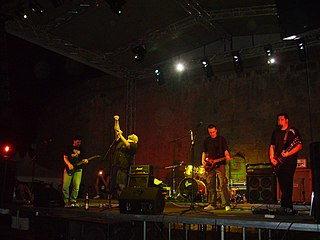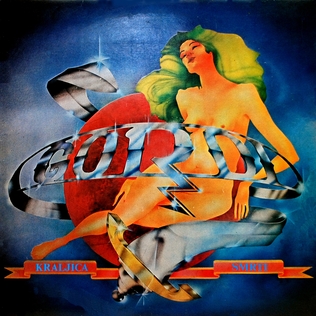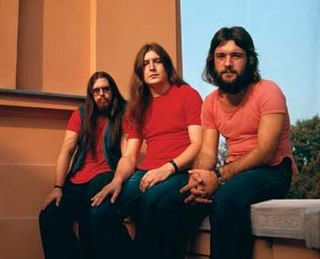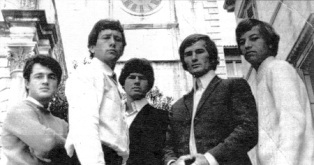
Partibrejkers is a Serbian rock band from Belgrade, as well as one of the most acclaimed acts of the Yugoslav rock scene.

Galija is a Serbian and Yugoslav rock band formed in Niš in 1977.

Nebo je malo za sve is the debut studio album from Serbian and Yugoslav hard rock band Kerber, released in 1983.

Ljudi i bogovi is the fourth studio album from Serbian and Yugoslav hard rock band Kerber, released in 1988.

Peta strana sveta is the fifth studio album from Serbian and Yugoslav hard rock band Kerber, released in 1990.

Gordi were a Yugoslav rock band formed in Belgrade in 1977.

Bjesovi were a Serbian alternative rock band formed in Gornji Milanovac in 1989. The band was one of the most notable acts of the 1990s Serbian rock scene.

Kraljica smrti is the fifth and the last studio album by Yugoslav rock band Gordi, released in 1982.

Pakleni trio is the fourth studio album by Yugoslav rock band Gordi, released in 1981. Pakleni trio was the band's first album to feature heavy metal sound, for which Gordi are mostly remembered.

Čovek is the 1978 debut studio album by Yugoslav rock band Gordi.

Gordi 2 is the second studio album released by Yugoslav rock band Gordi, released in 1979.

Dah was a Yugoslav and later Belgian progressive rock band formed in Belgrade in 1972.

Kozmetika was a Yugoslav new wave/art rock band formed in Belgrade in 1978. Kozmetika were one of the pioneers of the Yugoslav new wave scene, as well as promoters of the Yugoslav new wave culture through their pop culture magazine Izgled.

Pop Mašina was a Yugoslav progressive rock band formed in Belgrade in 1972. Pop Mašina was one of the most notable bands of the Yugoslav rock scene in the 1970s.

Džentlmeni were a Yugoslav rock band formed in Belgrade in 1966.

Opus was a Yugoslav progressive rock band formed in Belgrade in 1973. Opus was a prominent act of the 1970s Yugoslav rock scene.

Kozmetika is the only album by the Yugoslav new wave/art rock band Kozmetika, released in 1983.

Ruž was a Serbian and Yugoslav pop rock band from Belgrade.
Zlatko Manojlović is a Serbian guitarist and singer. He is known as the leader of the progressive rock band Dah and the heavy metal band Gordi, as well as for his eclectic solo work.

Opus 1 is the debut and only studio album by Yugoslav progressive rock band Opus, released in 1975.



















